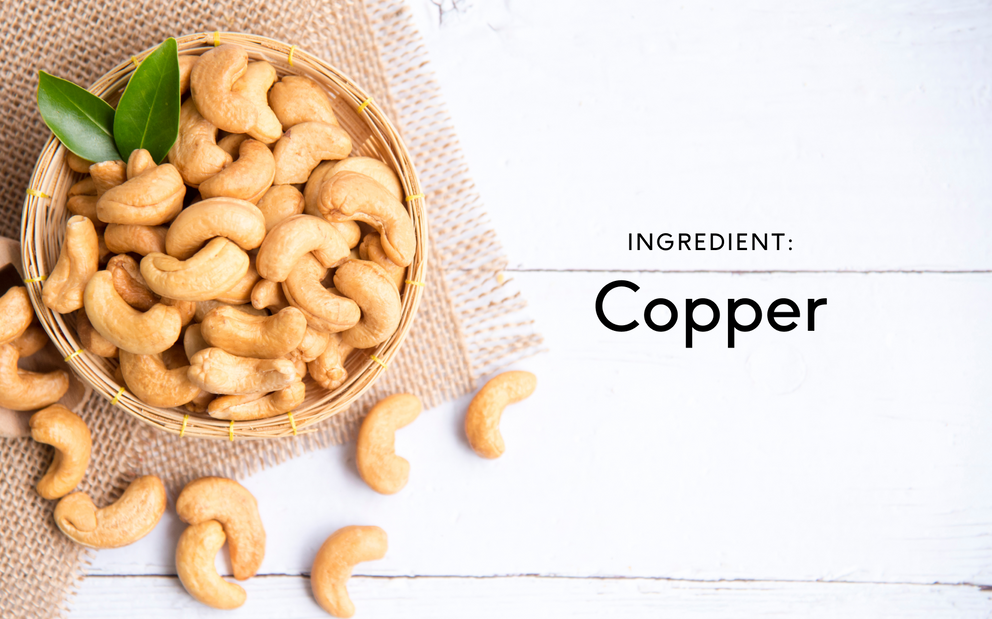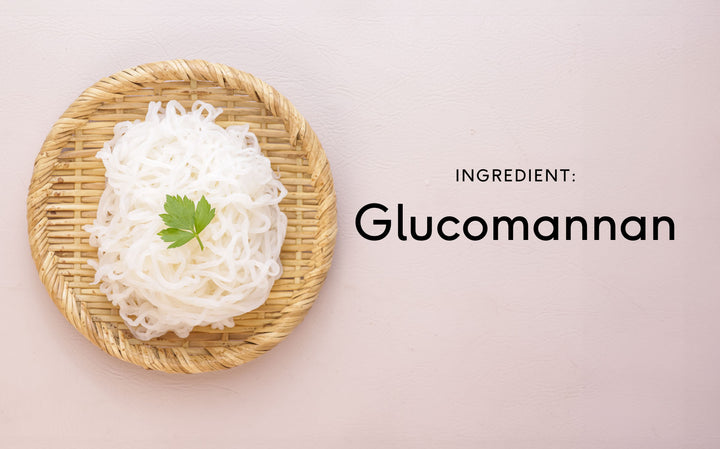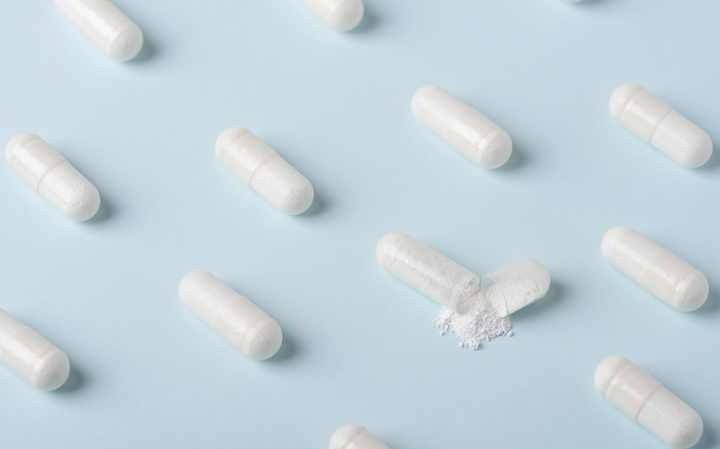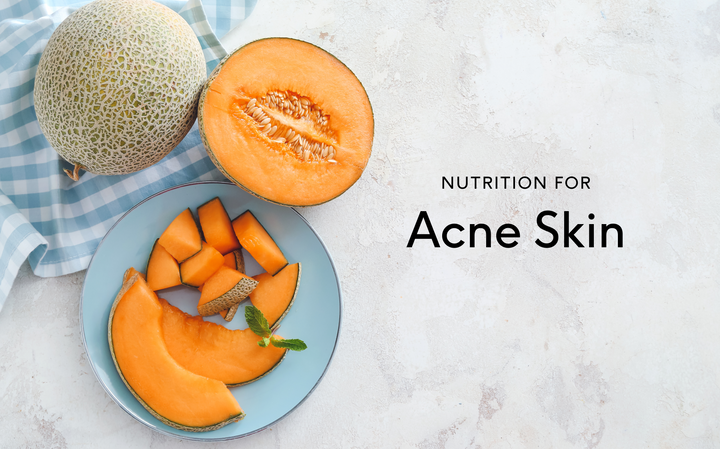Learn About Copper in 5 Minutes
Table of contents

What is copper?
Copper is one of the essential minerals, which means your body needs it in trace amounts to stay healthy. This mineral protects your neurological health, has cardiovascular functions, and helps with hypothyroidism.
- Protects your neurological health to prevent diseases like Alzheimer’s
- Supports proper bone density to decrease your risk of osteoporosis
- Insulates your spinal cord to keep your limbs moving normally
- Supports healthy thyroid activity to prevent symptoms of hypothyroidism
- Prevents vision loss caused by severe copper deficiency
Why we love copper
Copper is a type of heavy metal that your body can’t do without. Various organs and tissues throughout your body use copper to perform vital processes, and this metal may also prevent serious diseases.
Research indicates that proper copper levels may prevent neurodegenerative conditions like Alzheimer’s and Parkinson’s disease. Your bones use copper to repair themselves, which prevents osteoporosis. This metal is also involved in your thyroid functions, which keep your metabolism and heart rate steady.
Some scientists even believe that copper supplementation may be up to three times more effective than some of the most cutting-edge chemotherapy drugs. Upon consideration of all these benefits, it’s clear that copper is a must-have in your daily diet.
Unbelievable Benefits of Copper
Science has uncovered a number of impressive benefits of consuming your daily recommended dose of copper:
Neurological Benefits
Copper is involved in neuronal signalling. Without copper, your nerve cells can’t communicate with each other effectively, which can lead to a whole host of cognitive issues.
When you don’t ingest enough copper, you leave yourself open to neurodegenerative diseases. For instance, a study showed that people with Alzheimer’s disease had an average of 70 percent less copper in their brains than healthy people, which establishes a link between copper deficiency and this widespread neurological illness.
Copper insulates the spinal cord, which protects the critical components of the peripheral nervous system that allow your limbs and extremities to move properly. When you don’t have enough copper in your body, you can have trouble balancing, and you can even lose your ability to walk.
Bone Benefits
People who have lower levels of copper are more likely to have osteoporosis, which suggests a link between this metal and bone health. Copper helps your bones make structures called cross-links, which contribute to your overall bone density. This metal also promotes the production of osteoblasts in your bones, and these cells play a key role in strengthening bone tissue.
Thyroid Benefits
Your body uses the thyroid hormones T3 and T4 to regulate metabolic functions throughout your body. Research shows that low levels of copper in the blood lead to decreased concentrations of T3 and T4, which means that supplementing with copper can improve the functioning of your thyroid system. In addition to helping you maintain healthy weight and preventing goiter, a healthy thyroid system also keeps your heartbeat stable and prevents you from feeling unreasonably cold.
Vision Benefits
If you are severely deficient in copper for a long time, you can lose your vision due to ocular neuropathy. If you’ve had gastric bypass surgery, it’s especially important for you to supplement with copper to stave off ocular neuropathy since this procedure can negatively affect your body’s ability to absorb copper.
Copper is also believed to have antioxidant properties within the skin, reducing the appearance of fine lines, and evening skin tone. That's why we've included 0.5mg of copper in Feel Skin Care, 50% of your daily recommended intake.
Is copper water-soluble or fat-soluble?
Copper is fat soluble, and is stored around the body and used as necessary.
Where can copper be found naturally?
Vegan or vegetarian sources of dietary copper include shitake mushrooms and most nuts and seeds. For non-vegans, copper is highly concentrated in oysters and liver.
5 foods/drinks containing copper
1. Sesame seeds 300% DV per 128g or 1 cup
2. Potato 35% DV per 1 medium potato or 200g
3. Cashews 30% DV per 128g or 1 cup
4. Beef liver 620% DV per 85g
5. Oysters 245% DV per 85g
What is the recommended daily intake for copper?
The recommended daily amount (RDA) of copper is 900mcg for adults. Lactating or breastfeeding women should consume 1000mcg of copper per day, and RDA levels are lower for children and adolescents.
What to consume to get a full daily dose of copper?
Sesame seeds - approximately 20g
Potatoes - approximately 3 medium potatoes
Cashews - approximately 200g
Beef - approximately 15g
Oyster - approximately 15g
Can you absorb enough of copper from food?
Getting enough copper from your food can be difficult especially when you're vegan, so it's advised to supplement it with multivitamins. For meat eaters it would be enough to consume a small amount of liver to get your daily RDA.
Why is copper necessary for your body?
Copper is necessary for the production of blood cells, and this mineral also performs important functions in your bones. This nutrient also reduces your chances of developing osteoporosis and cardiovascular conditions.
Functions of copper
Blood cell formation: Copper is a necessary component of red and white blood cells
Neurological: This mineral is used in neuron signalling
Immunological: Since copper is needed to make white blood cells, copper deficiency compromises your immune system
Collagen production: Copper is involved in the production of collagen, which is the most abundant protein in your body.
Symptoms of copper deficiency
Anaemia
Since copper is a critical component in the formation of blood cells, copper deficiency can result in anaemia. Symptoms of this condition include fatigue and low heart rate.
Osteoporosis
Copper is needed for proper bone growth and maintenance, so copper deficiency can cause osteoporosis, which is a condition in which your bones become fragile and brittle.
Immunological Issues
Copper’s function in white blood cell production can result in immune issues when you are deficient in this mineral. One common symptom is frequent illness.
How long do you need to take copper to start experiencing its benefits?
Ideally, the body stores copper in your organs, and it uses this mineral as necessary. You may start to to notice the benefits after supplementing with copper for 1 week, but it may take over 2 months to experience the full benefits.
Consistency is key and our research recommends taking your Feel supplements for at least 3 months to allow your body to adjust and provide the desired benefits.
How long does it take for your body to digest/absorb copper?
The more copper you take, the slower it absorbs. The absorption rate for this mineral can be as low as 12% when you consume high quantities, but most people absorb up to 40% of the copper they consume within 24-48 hours.
How long does copper stay in your body after you take it?
Copper is stored in your organ tissues, which means that it can remain in your body for months or even years before it is used and excreted. In cases of copper poisoning, this mineral can remain in your body for multiple years.
Is copper an antioxidant?
Scientists believe that copper may have antioxidant functions. It is far from being the most potent antioxidant, but it appears to reduce the levels of free radicals in your body to support cellular health and longevity.
Can you overdose on copper? What are the effects?
Copper is stored in your liver and kidneys, and excessive levels of copper buildup can cause copper poisoning. Overdose on copper is highly rare, but symptoms of this condition include vomiting, vomiting blood, low blood pressure, jaundice, or even coma. Take copper in a daily multivitamin to make sure you don’t accidentally consume too much of this substance.
Does copper dissolve, flush out, or build up in the body?
Citric acid, the carrier for Copper, flushes out of the body almost immediately. Copper itself, however, stays in your body for some time, and it builds up in many of your organ tissues. Therefore, high intake levels of copper are not advised.
Can you take copper during a diet?
There is no reason you shouldn’t take copper supplements if you’re on a diet. Common sources of copper can be problematic for people who are practicing animal-free diets.
Are there synthetic forms of copper?
Copper itself is a pure mineral, which means that advanced technologies, such as nuclear fission, would be required to synthesise this substance. Most types of citric acid are synthetic, but they are chemically identical to natural forms of this citrus-derived compound.
Why might synthetic forms of copper be better?
Synthetic copper would only be valuable if the Earth’s natural copper supplies were depleted. It is extremely expensive to extract citric acid from citrus fruits, so synthesising this compound in a lab is the only way to make it economically viable.
Absorption rate of synthetic copper
The absorption rate of copper paired with synthetic citric acid is the same as copper paired with natural citric acid.
Why might natural forms of copper be better?
There is no reason to assume that natural citric acid would perform better than synthetic citric acid in the body. However, some sources contend that the process used to make synthetic citric acid may leave behind mycotoxins. No scientific research has confirmed this speculation.
How to take copper
It’s possible to source copper from foods. However, getting exactly 100% of your RDA of copper is hard especially if you're vegan. Supplementation is the most reliable way to take copper.
Copper trends in medicine
Recently, scientists examined the relationship between copper intake and the development of multiple sclerosis (MS). While these researchers did not discover any correlation between copper intake and either the genesis or development of MS symptoms, it’s clear that medical researchers remain interested in the potential benefits of increased dietary copper intake.
Why everyone should be taking WeAreFeel supplements
Minerals like copper are tricky; without enough copper, you’ll rapidly become ill, but if you consume too much of this nutrient, you could experience heavy metal poisoning. Most food-based sources of copper have either far too little or far too much of this substance, which makes getting your exact RDA every day difficult. Here at WeAreFeel, however, we’ve developed a revolutionary multivitamin that delivers exactly the amount of copper you need every day to stay healthy; keep copper concerns at bay with Feel!
Here’s the Proof
- Copper: A new player in health and disease
- Metabolism and functions of copper in brain.
- Evidence for widespread, severe brain copper deficiency in Alzheimer's dementia.
- Copper deficiency as a treatable cause of poor balance
- Nitroimidazole and glucosamine conjugated heteroscorpionate ligands and related copper(II) complexes. Syntheses, biological activity and XAS studies
- Low serum levels of zinc, copper, and iron as risk factors for osteoporosis: a meta-analysis.
- Copper, lysyl oxidase, and extracellular matrix protein cross-linking.
- Positive correlation of thyroid hormones and serum copper in children with congenital hypothyroidism
- Combined optic neuropathy and myelopathy secondary to copper deficiency.
- Acute and bilateral blindness due to optic neuropathy associated with copper deficiency.




















































 Back
Back





